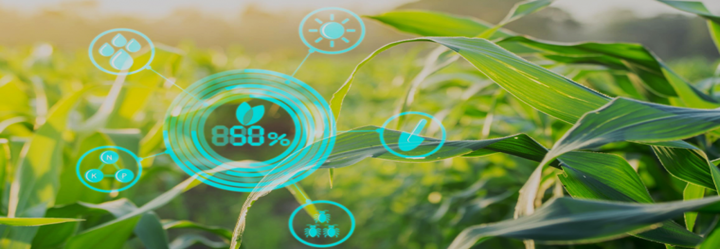Globally, India is the 4th largest producer of agrochemicals after the United States, Japan and China and has emerged as the 13th largest exporter of pesticides. It is a major hub of generic pesticides production, which leverages, among other things, the fact that branded molecules, exclusive to the producing companies, are open for larger use after the patent period of 20 years. The fact that 22 such molecules are going to come out of their patent period will substantially expand the offerings of the Indian companies to people at home and abroad alike and may help fetch extra revenue.
Agrochemical sector is deeply interested in the molecules which are going to be off-patented as it creates an opportunity for its own commercial development. Pesticide companies, especially in developing countries, wait for generic active ingredient molecules as it provides huge opportunities for generic manufacturers to provide agrochemicals at a reasonable affordable price for farmers to protect their yield from pests and disease. Moreover, generic pesticides are same in quality of patented pesticides, effectively affordable in price for Indian and global farmers, are Based on the same active substances and work in the same way in the crop as the patented pesticide but cost much less.
Both patented and generic pesticides are subject to the same approval process from the competent authority for registration, a generic pesticide is as safe and effective as the original patented pesticide
There are around 22 pesticide active ingredients which are about to get out of their IPR period in the next ten years i.e., between 2021 and 2030.
These are:
| Aminopyralid | Benzovindiflupyr | Bixafen | Chlorantraniliprole |
| Cyantraniliprole | Fenpyrazamine | Flubendiamide | Fluopicolide |
| Fluopyram | Fluxapyroxad | Isopyrazam | Penflufen |
| Penthiopyrad | Pinoxaden | Pyriofenone | Pyroxsulam |
| Mandipropamid | Saflufenacil | Sedaxane | Sulfoxaflor |
| Thiencarbazone-methyl | Valifenalate |
The demand for some of these off patented technical grade molecules in the global market is expected to increase drastically. It is expected that the market size of these products will cross over US$ 4.1 billion by 2026.
Generic molecules break the monopoly of a company who had their patent right for about 20 years without any competitor. In fact, monopoly for such a long period is dangerous as there is no control over the price of the product and it can go up as high as the manufacturer wishes. Since the last many years, it has been observed that innovators are becoming more possessive and monopolistic. The generic producers constitute about 30% of the global pesticide industry, mainly due to increase in the number of off-patented molecules and decline in new active ingredients, both of which favor generic pesticides industry which has seen a faster growth as compared to the inventor (R&D based) companies recently.
The reason is that the products like Chlorantraniliprole, Fluropyram, Fluxapyroxad, Cyantranilipore, Bixafen, Sedaxane, Fenpyrazamine and Flupicolide have a huge market. Industry players will have an opportunity, specifically in regulated markets, to choose the generic according to the demand of the market where so many products are becoming off-patent.
In India, these generic products will provide enormous growth to generic manufacturers and also to formulators who are directly or indirectly affected while the products are under IPR.
A word of caution
The increased regulatory pressure in the EU and now increasingly elsewhere is (in general) putting additional pressure on off-patent chemistry to a greater extent than patented chemistry. Companies need to consider more than just sales. Beside factors such as chemistry and regulatory, a key element for any off-patent company post 2020 is a “comprehensive” portfolio of advanced chemistry in order to compete with the “solutions focused” multinationals that can offer a “bundled” seed, trait and crop protection package.
The floating traffic jams off ports. The multiplying costs of moving freight. The resulting shortages of goods. All of this had seemed like an unpleasant memory confined to the COVID-19 pandemic. But no such luck!
An ocean container capacity crunch has hit global trade just as peak shipping season starts, with freight spot rates up some 30% over the past few weeks and heading higher.
The first joint Europe-wide assessment of the drivers and impact of chemical pollution by the European Environment Agency (EEA) and the European Chemicals Agency (ECHA) has concluded that, despite progress in some areas, “more work is still needed to reduce the impact of harmful substances on human health and the environment”. Key findings include:
The severe drought which has forced the Panama Canal, one of the world’s busiest trade passages, to limit daily crossings could impact global supply chains during a period of high demand.
In the early hours of March 26, the Singapore-flagged ship Dali, loaded with 5,000 containers, slammed into Baltimore’s Francis Scott Key Bridge, causing the 1.6-mile (2.5-kilometer) bridge to collapse in a matter of seconds. The Dali was departing for Colombo when the disaster struck. Initial fears were confirmed that half a dozen people lost their lives in the accident.
The pharmaceutical and biotechnology industries constantly seek innovative methods to enhance product stability, solubility, bioavailability and ease of use. Within this realm, CDMOs [Contract Development & Manufacturing Organizations] serve as invaluable partners in the development and production of high-quality drug products.
Chinese New Year 2024 is upon us, disrupting logistics from Asia starting Feb 10th. This event is expected to impact global shipping until Feb 21. Freight rates from Asia has skyrocketed with rates to the US surging by 3.5X and Europe by 6X.
Amid ongoing Red Sea diversions by shipping giants like Maersk, CMA, logistics managers are globally confronting a dual challenge of escalating ocean and air freight prices alongside cargo disruptions due to
Why will CM be the next generation on quality?
